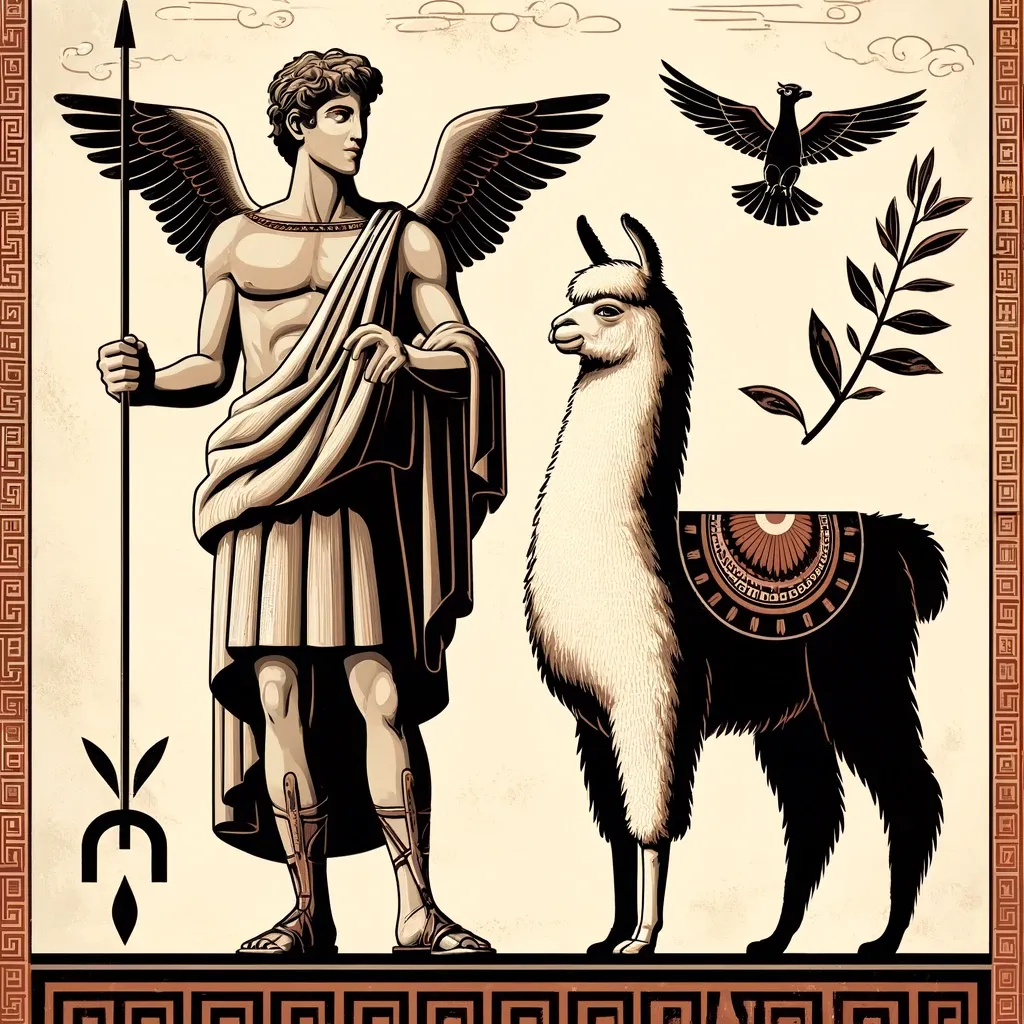nous-hermes-2-solar-10.7b
Maintainer: nateraw

63

| Property | Value |
|---|---|
| Run this model | Run on Replicate |
| API spec | View on Replicate |
| Github link | View on Github |
| Paper link | No paper link provided |
Create account to get full access
Model overview
nous-hermes-2-solar-10.7b is the flagship model of Nous Research, built on the SOLAR 10.7B base model. It is a powerful language model with a wide range of capabilities. While it shares some similarities with other Nous Research models like [object Object], nous-hermes-2-solar-10.7b has its own unique strengths and specialized training.
Model inputs and outputs
nous-hermes-2-solar-10.7b is a text generation model that takes a prompt as input and generates relevant and coherent text as output. The model's inputs and outputs are detailed below:
Inputs
- Prompt: The text that the model will use to generate a response.
- Top K: The number of highest probability tokens to consider for generating the output.
- Top P: A probability threshold for generating the output, used in nucleus filtering.
- Temperature: A value used to modulate the next token probabilities.
- Max New Tokens: The maximum number of tokens the model should generate as output.
- Prompt Template: A template used to format the prompt, with a placeholder for the input prompt.
- Presence Penalty: A penalty applied to the score of tokens based on their previous occurrences in the generated text.
- Frequency Penalty: A penalty applied to the score of tokens based on their overall frequency in the generated text.
Outputs
- The model generates a list of strings as output, representing the text it has generated based on the provided input.
Capabilities
nous-hermes-2-solar-10.7b is a highly capable language model that can be used for a variety of tasks, such as text generation, question answering, and language understanding. It has been trained on a vast amount of data and can produce human-like responses on a wide range of topics.
What can I use it for?
nous-hermes-2-solar-10.7b can be used for a variety of applications, including:
- Content generation: The model can be used to generate original text, such as stories, articles, or poems.
- Chatbots and virtual assistants: The model's natural language processing capabilities make it well-suited for building conversational AI agents.
- Language understanding: The model can be used to analyze and interpret text, such as for sentiment analysis or topic classification.
- Question answering: The model can be used to answer questions on a wide range of subjects, drawing from its extensive knowledge base.
Things to try
There are many interesting things you can try with nous-hermes-2-solar-10.7b. For example, you could experiment with different input prompts to see how the model responds, or you could try using the model in combination with other AI tools or datasets to unlock new capabilities.
This summary was produced with help from an AI and may contain inaccuracies - check out the links to read the original source documents!
Related Models

nous-hermes-2-solar-10.7b-gguf

27
nous-hermes-2-solar-10.7b-gguf is the flagship Nous Research model built on the SOLAR 10.7B base model. It was developed by kcaverly, as described on their creator profile. This model is an improvement over the base SOLAR 10.7B, coming close to the performance of the Nous Hermes 2 - Yi-34B model. It was fine-tuned on over 1,000,000 entries of primarily GPT-4 generated data, as well as other high quality data from open datasets. Similar models include the Nous Hermes 2 - SOLAR 10.7B and Nous-Hermes 2 - SOLAR 10.7B models, which share the same base architecture and training data. The Hermes-2 Θ (Theta) - Llama 8B is an earlier experimental model from Nous Research. Model inputs and outputs nous-hermes-2-solar-10.7b-gguf is a large language model that can take in free-form text prompts and generate coherent, context-appropriate responses. The model supports a variety of input formats, including the ChatML format used by OpenAI's ChatGPT. Inputs Prompt**: The text prompt provided to the model, which can include instructions, questions, or open-ended requests. Temperature**: A parameter that controls the "warmth" or creativity of the model's responses, with higher values leading to more diverse and unexpected outputs. System Prompt**: An optional system-level prompt that can help guide the model's behavior and persona. Max New Tokens**: The maximum number of new tokens the model should generate in response. Repeat Penalty**: A parameter that discourages the model from repeating itself too often, encouraging more diverse and dynamic responses. Prompt Template**: An optional template for structuring the input prompt, which can be useful for multi-turn interactions. Outputs Generated Text**: The model's response, which can range from a single sentence to multiple paragraphs, depending on the input and parameters. Capabilities nous-hermes-2-solar-10.7b-gguf has demonstrated strong performance across a variety of benchmarks, including GPT4All, AGIEval, BigBench, and TruthfulQA. It has shown improvements over the base SOLAR 10.7B model in areas like reasoning, logical deduction, and truthfulness. The model is capable of engaging in open-ended conversations, answering questions, and providing detailed, coherent responses to prompts. What can I use it for? With its broad capabilities, nous-hermes-2-solar-10.7b-gguf can be used for a wide range of applications, from customer service chatbots to creative writing assistants. The model's ability to understand and follow complex instructions makes it well-suited for tasks like code generation, technical writing, and task planning. Its strong performance on benchmarks like TruthfulQA also suggests it could be useful for building trustworthy AI assistants. Things to try One interesting aspect of nous-hermes-2-solar-10.7b-gguf is its use of the ChatML prompt format, which allows for more structured and interactive conversations. Experimenting with different system prompts and prompt templates can help unlock the model's potential for engaging, multi-turn dialogues. Additionally, fine-tuning the model on domain-specific data could further enhance its capabilities for specialized tasks.
Updated Invalid Date
🏋️
Nous-Hermes-2-SOLAR-10.7B

196
The Nous-Hermes-2-SOLAR-10.7B is the flagship Nous Research model on the SOLAR 10.7B base model. It was trained on 1,000,000 entries of primarily GPT-4 generated data, as well as other high quality data from open datasets across the AI landscape. This model is a significant improvement over the base SOLAR 10.7B model and approaches the performance of the Nous-Hermes-2-Yi-34B model across a variety of benchmarks. Model inputs and outputs The Nous-Hermes-2-SOLAR-10.7B model uses the ChatML prompt format, which allows for more structured multi-turn dialogue with the AI. This format enables OpenAI endpoint compatibility, and people familiar with the ChatGPT API will find the format familiar. Inputs Prompts following the ChatML format, with special tokens denoting the start and end of turns, as well as the roles of the participants. Outputs Coherent, contextually appropriate responses generated by the model based on the provided prompts. Capabilities The Nous-Hermes-2-SOLAR-10.7B model has demonstrated strong performance across a variety of benchmarks, including GPT4All, AGIEval, BigBench, and TruthfulQA. It excels at tasks like question answering, logical reasoning, and following complex instructions. What can I use it for? The Nous-Hermes-2-SOLAR-10.7B model can be used for a wide range of language tasks, from generating creative text to understanding and following complex instructions. It could be particularly useful for building conversational AI applications, like chatbots or virtual assistants, that require more structured and contextual interactions. Things to try One interesting aspect of the Nous-Hermes-2-SOLAR-10.7B model is its use of the ChatML prompt format. This allows for more sophisticated multi-turn dialogues, where the model can maintain context and coherence across multiple exchanges. Developers could experiment with building applications that leverage this capability, such as task-oriented chatbots or interactive writing assistants.
Updated Invalid Date

hermes-2-theta-llama-8b

2
Hermes-2-Theta-Llama-8B is the first experimental merged model released by Nous Research, in collaboration with Charles Goddard at Arcee, the team behind MergeKit. It is a merged and further reinforcement learned model that combines the capabilities of Nous Research's excellent Hermes 2 Pro model and Meta's Llama-3 Instruct model. This model aims to deliver the best of both worlds, leveraging the strengths of each to create a more capable and versatile AI assistant. Similar models include Hermes-2-Theta-Llama-3-8B, Hermes-2-Theta-Llama-3-8B-GGUF, nous-hermes-llama2-awq, nous-hermes-2-solar-10.7b, and nous-hermes-2-yi-34b-gguf. Model Inputs and Outputs Hermes-2-Theta-Llama-8B takes a variety of inputs to control the text generation process, including: Inputs Prompt**: The starting text for the model to continue. Top K**: The number of most likely tokens to sample from during decoding. Top P**: The cumulative probability threshold to use for sampling during decoding. Temperature**: A value controlling the randomness of the output. Max Tokens**: The maximum number of tokens to generate. Min Tokens**: The minimum number of tokens to generate. Stop Sequences**: A list of sequences to stop generation at. The model outputs an array of generated text. Capabilities Hermes-2-Theta-Llama-8B demonstrates strong capabilities in a variety of areas, including open-ended text generation, creative writing, and task-oriented dialogue. It can be used to generate new mythos, engage in meta-cognitive conversations, and provide structured JSON outputs in response to prompts. What Can I Use It For? With its diverse set of capabilities, Hermes-2-Theta-Llama-8B can be leveraged for a wide range of applications. Some potential use cases include: Creative Writing**: Use the model to generate new stories, poems, or imaginative narratives. Conversational AI**: Develop chat-based applications that can engage in natural, contextual dialogue. Data Extraction**: Leverage the model's ability to generate structured JSON outputs to extract information from unstructured text. Research and Experimentation**: Explore the model's capabilities and push the boundaries of what is possible with large language models. Things to Try Some interesting things to try with Hermes-2-Theta-Llama-8B include: Experimenting with different system prompts to steer the model's behavior and capabilities. Utilizing the model's function calling capabilities to integrate external data and services into the AI's responses. Exploring the model's ability to engage in meta-cognitive reasoning and self-reflective dialogue. Investigating the model's performance on specialized tasks or datasets to uncover its unique strengths and weaknesses.
Updated Invalid Date
⚙️
nous-hermes-llama2-awq

7
nous-hermes-llama2-awq is a language model based on the Llama 2 architecture, developed by nateraw. It is a "vLLM" (virtualized Large Language Model) version of the Nous Hermes Llama2-AWQ model, providing an open source and customizable interface for using the model. The model is similar to other Llama-based models like the llama-2-7b, nous-hermes-2-solar-10.7b, meta-llama-3-70b, and goliath-120b, which are large language models with a range of capabilities. Model inputs and outputs The nous-hermes-llama2-awq model takes a prompt as input and generates text as output. The prompt is used to guide the model's generation, and the model outputs a sequence of text based on the prompt. Inputs Prompt**: The text that is used to initiate the model's generation. Top K**: The number of highest probability tokens to consider for generating the output. Top P**: A probability threshold for generating the output, where only the top tokens with cumulative probability above this threshold are considered. Temperature**: A value used to modulate the next token probabilities, controlling the creativity and randomness of the output. Max New Tokens**: The maximum number of tokens the model should generate as output. Prompt Template**: A template used to format the prompt, with a {prompt} placeholder for the input prompt. Presence Penalty**: A penalty applied to tokens that have already appeared in the output, to encourage diversity. Frequency Penalty**: A penalty applied to tokens based on their frequency in the output, to discourage repetition. Outputs The model outputs a sequence of text, with each element in the output array representing a generated token. Capabilities The nous-hermes-llama2-awq model is a powerful language model capable of generating human-like text across a wide range of domains. It can be used for tasks such as text generation, dialogue, and summarization, among others. The model's performance can be fine-tuned for specific use cases by adjusting the input parameters. What can I use it for? The nous-hermes-llama2-awq model can be useful for a variety of applications, such as: Content Generation**: Generating articles, stories, or other textual content. The model's ability to generate coherent and contextual text can be leveraged for tasks like creative writing, blog post generation, and more. Dialogue Systems**: Building chatbots and virtual assistants that can engage in natural conversations. The model's language understanding and generation capabilities make it well-suited for this task. Summarization**: Automatically summarizing long-form text, such as news articles or research papers, to extract the key points. Question Answering**: Providing answers to questions based on the provided prompt and the model's knowledge. Things to try Some interesting things to try with the nous-hermes-llama2-awq model include: Experimenting with different prompt templates and input parameters to see how they affect the model's output. Trying the model on a variety of tasks, such as generating product descriptions, writing poetry, or answering open-ended questions, to explore its versatility. Comparing the model's performance to other similar language models, such as the ones mentioned in the "Model overview" section, to understand its relative strengths and weaknesses.
Updated Invalid Date